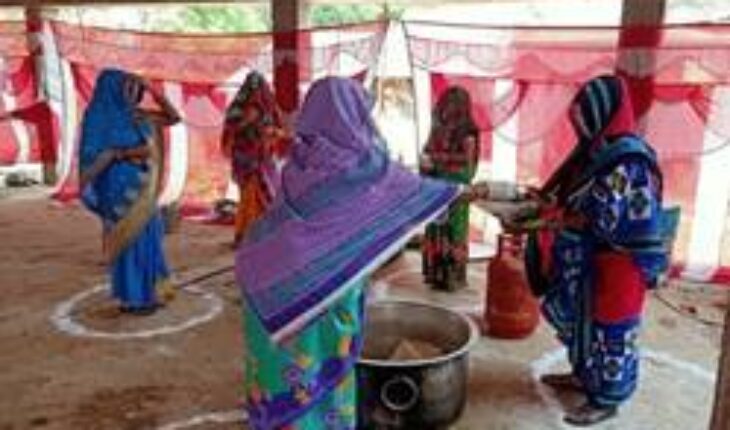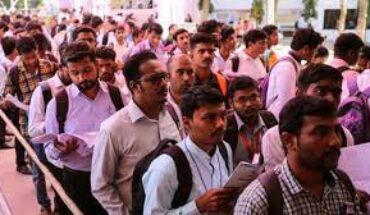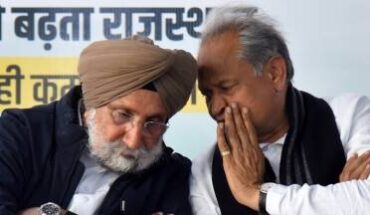COVID–19 global pandemic has resulted in a national lockdown leaving a large number of people vulnerable to hunger. Those worst hit by this unprecedented pandemic and lockdown are daily wage labourers, migrants, homeless, the poor and many who form the floating population. Community kitchens have emerged as an empirical solution to feed those in need. The main idea behind community kitchen is to provide cheap and nutritious, and often free food to people who cannot afford it.
The presence of the Self Help Group (SHG) network in every Gram Panchayat and the linkage with Local Self Governments were important factors in assigning the operation of community kitchens/Didi’s cafes to them. 10,000 community kitchens have been set up across five states of Bihar, Jharkhand, Kerala, Madhya Pradesh and Odisha, to name a few. These kitchens spread across 75 different districts have been providing meals twice a day to nearly 70,000 individuals who are vulnerable and needy. Other states are also running such initiatives.
Kerala is a state with high number of COVID-19 positive cases. SHG Kudumbashree in collaboration with local governments is running Community Kitchens in local bodies where there are migrant workers and poverty stricken families. The basic food menu designed by the SHG is mainly Ghee rice and chicken curry. These community kitchens after preparing food, pack them into small packages and send them to rural communities. These small packages also help lots of people who are under home quarantine to access nutritious food.
In Tripura community kitchen contracts have been given by the Tripura government to SHGs that have catering business or any experience of cooking in large quantities. SHG women in Arunachal Pradesh have contributed cash amount to administration and are providing breakfast, lunch, tea and refreshments to police personnel deployed in COVID-19 duty and also providing free stitched masks, rice and vegetables etc. to them.
In Odisha, around 70 lakh women members of 6 lakh Mission Shakti SHGs are working together to help the people in need and providing them the basic necessities like dry ration, groceries and cooked food by community kitchen. Around 45,000 are people are being fed via community kitchens under Mission Shakti.
Description: Community kitchens being run under Mission ShaktiJharkhand has launched the Muhkya Mantri Didi Kitchen (MMDK) for providing free food to the most needy, differently abled, children and identified poorest of the poor households in the villages. At present about 4185 community kitchens are being run in as many number of Panchayats in the state.
In Jammu and Kashmir, the SHG network is constantly in touch with the stranded migrant workers to address their needs.
SHG women ensure access to essential nutrition and health services amidst Lockdown
The “Stay Home and Stay Safe” also required that households are able to get essential goods and services at their doorsteps or close to them. Recognising this, Self Help Groups across the country have responded with various initiatives to ensure continued access to these essential services while following the mandated social distancing norms. These include production of ‘Ready to Eat’ Take Home Ration and doorstep delivery of dry ration and fresh vegetables, as well as services for menstrual hygiene. Electric vehicles and other kinds of vehicles supported under the NRLM Aajeevika Grameen Express Yojana (AGEY) are being used for this task in various states. Concept of “Vegetables on Wheels”, “Floating Supermarkets” are SHG Didi’s solution to the challenging times. In Odisha and Chhattisgarh, women are also distributing eggs along with the Take Home Ration. Through this they are reaching all children under five, pregnant women, and lactating mothers, target groups who are also vulnerable.
SHG members are supporting the supply of PDS by collecting ration supply using the cards and distributing them to the cardholders to prevent crowding of PDS shops. NRLM provides for Vulnerability Reduction Fund (VRF) to the community institutions to provide support to the very poor and vulnerable in the community. VRF has been used by the community institutions in most of the states across the country, including the NE states of Assam, Arunachal Pradesh, Mizoram, Megalaya, Nagaland, Manipur, Tripura and Sikkim for preparing food kits comprising variously of staples, cooking oil and personal hygiene products like washing soaps for the most vulnerable households in the village. In Odisha and Chhattisgarh, SHGs have also utilised the Vulnerability Reduction Fund (VRF) to ensure adolescent girls have access to enough clean pads.
Women collectives from SRLMs in Bihar, Odisha and Chhattisgarh, are supporting front line health workers in the delivery of essential child, maternal & adolescent health and nutrition-related entitlements. This also includes Antenatal and Post Natal Care services and micronutrient supplementation via IFA tablets. Women from 2118 SHGs from these states have reached out to 4310 pregnant and lactating mothers who are malnourished.
Sustaining their livelihoods through socially responsive contributions in promoting safe hygiene practices within their respective communities, these women have been fighting the COVID-19 outbreak with utmost dedication and devotion.
*****





